1 Kg of Rice For 1 Kg of Plastic: Telangana Collector Sets Up Unique Barter System
Around 2,400 kilos of plastic items were collected from this initiative on the very first day itself! #PlasticFreeIndia #LiveGreen
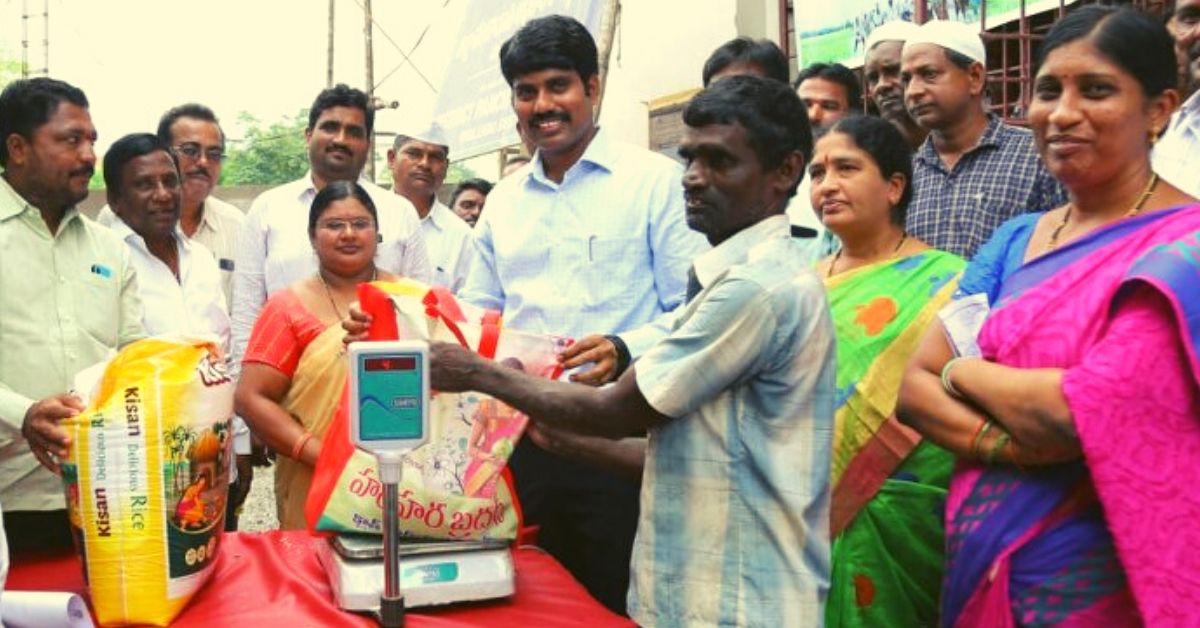
A school in Assam is accepting plastic waste as fees, a garbage café in Chhattisgarh is giving free meal in exchange of one kilo of plastic and Indian railways will soon charge phones on depositing a plastic bottle in a plastic crushing machine on platforms. With government and organisations coming up with innovative ways to shun plastic items, India seems to be on the cusp of an uprising against plastic waste.
Joining the bandwagon is Telangana’s Mulugu district, which recently launched an initiative called ‘Give 1 Kg Plastic Waste To Get 1 Kg Rice’ across 174 villages. The effort comes ahead of a soon-to-be imposed ban on the use of single-use plastic items like straws, spoons, glasses, carry bags, and so on.
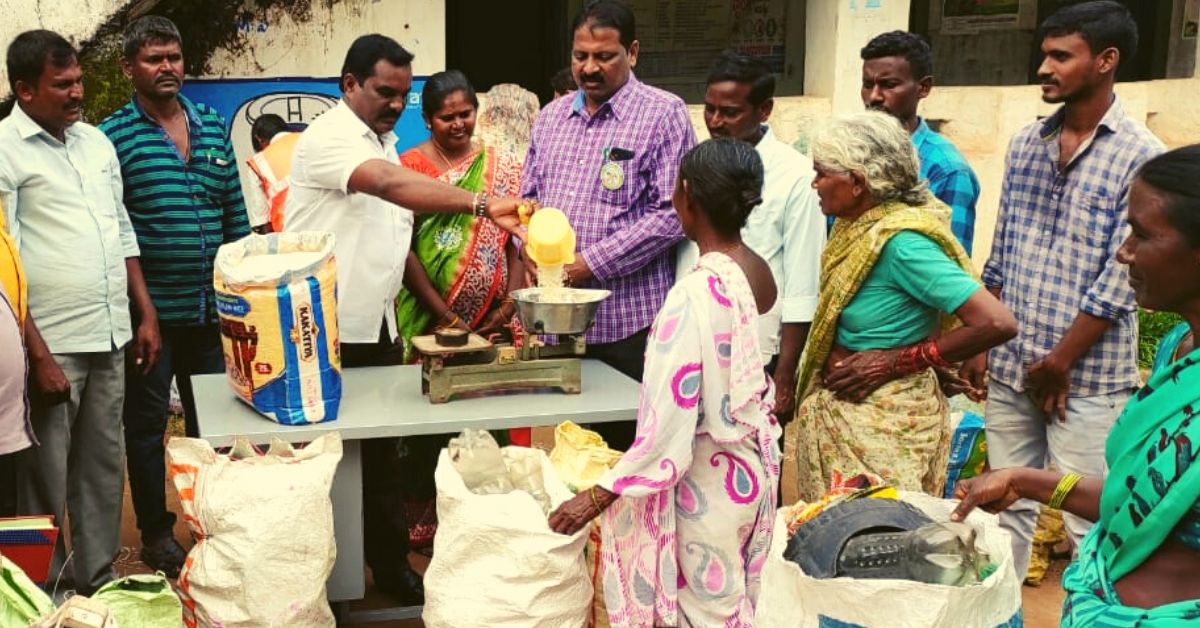
Under the 10-day programme, the Mulugu District administration will collect plastic items from villagers at the plastic collection centres established by the authorities at various locations. In return, the customers will get one kilo of rice for one kilo of plastic.
Speaking to The Better India, District Collector C Narayana Reddy explains the reason behind giving out free rice.
“Rice is only an incentive to educate people about plastic waste and why it needs to be banned in the region. Our district is famous for wildlife sanctuaries and temples that attract thousands of tourists from across the country. Though the authorities try to maintain cleanliness, the plastic menace still thrives. This initiative is our commitment to make India free from single-use plastic by 2020.”
The initiative is divided into two parts.
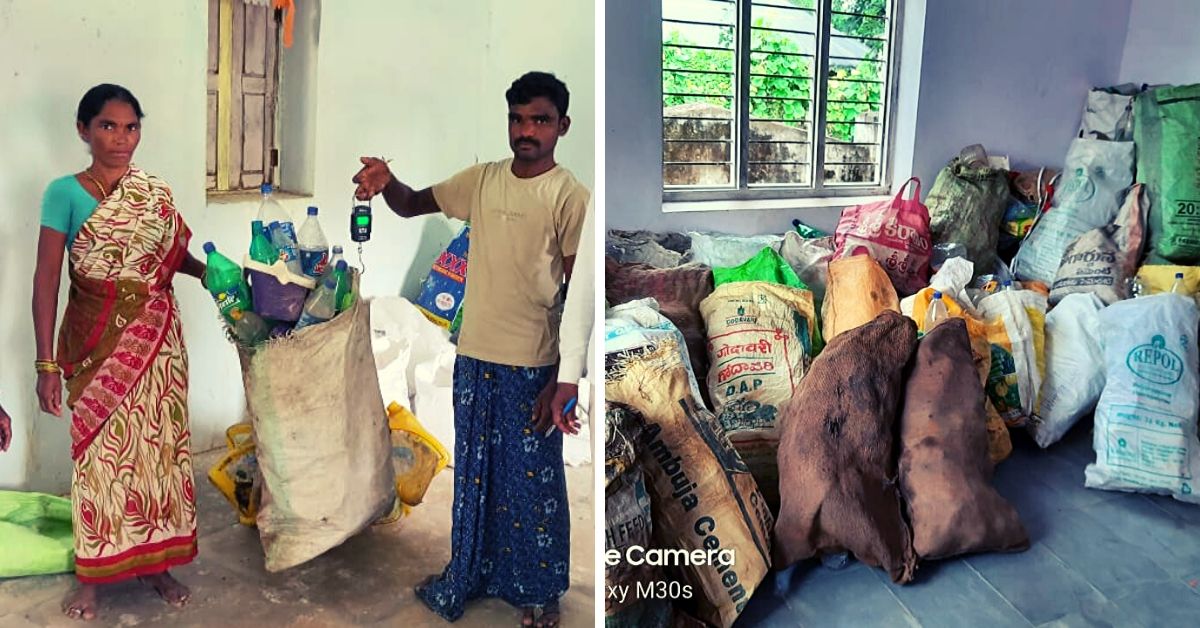
To drive the initiative, officials are accepting donations in the form of rice or cash from authorities and people. In case anyone wants to donate, the administration has given a number where people can reach out.
“Donors can call on the designated number to know the details — where they should hand over the cash or rice for the special programme,” said Mulugu tehsildar Ganya Naik to Telangana Today.
As anticipated, the administration received an overwhelmingly positive response—in the last 15 odd days donors have given over 450 quintals of rice and close to Rs 6 lakh in cash.
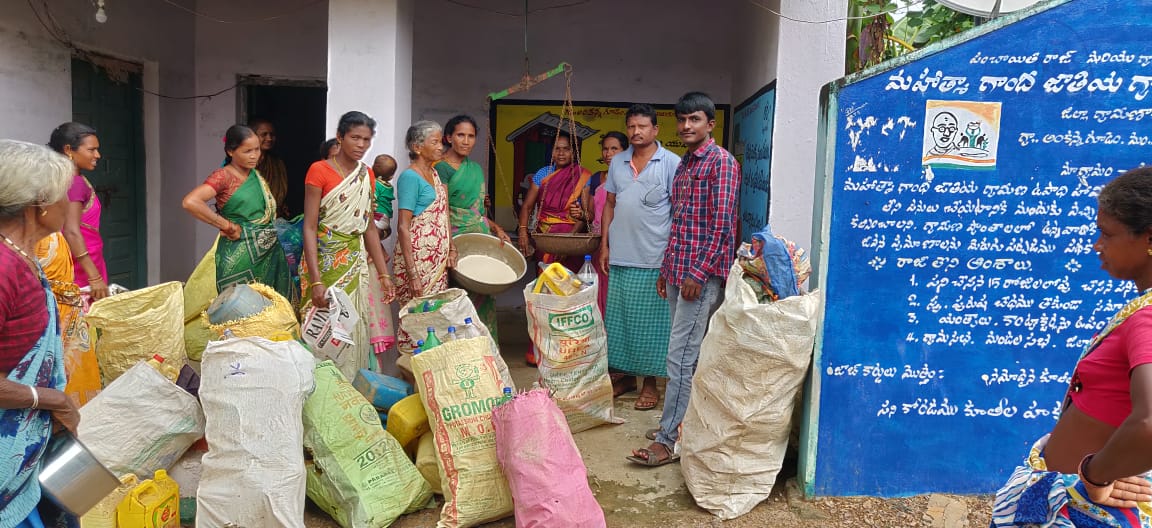
A similar response was recorded among plastic users as well. Around 2,400 kilos of plastic items, mainly bottles and bags, were collected from plastic collection centres in 250 areas on the very first day itself. 31,000 kilos of plastic is collected in total.
“The target is to collect 50 tonnes of plastic by the end of the collection drive. The accumulated plastic will be transported to recycling agencies and carry bags will be converted into fuel in cement factories,” says the district collector.
To replace the plastic bags, the DC has simultanouesly started a cloth bag initiative across all the villages.
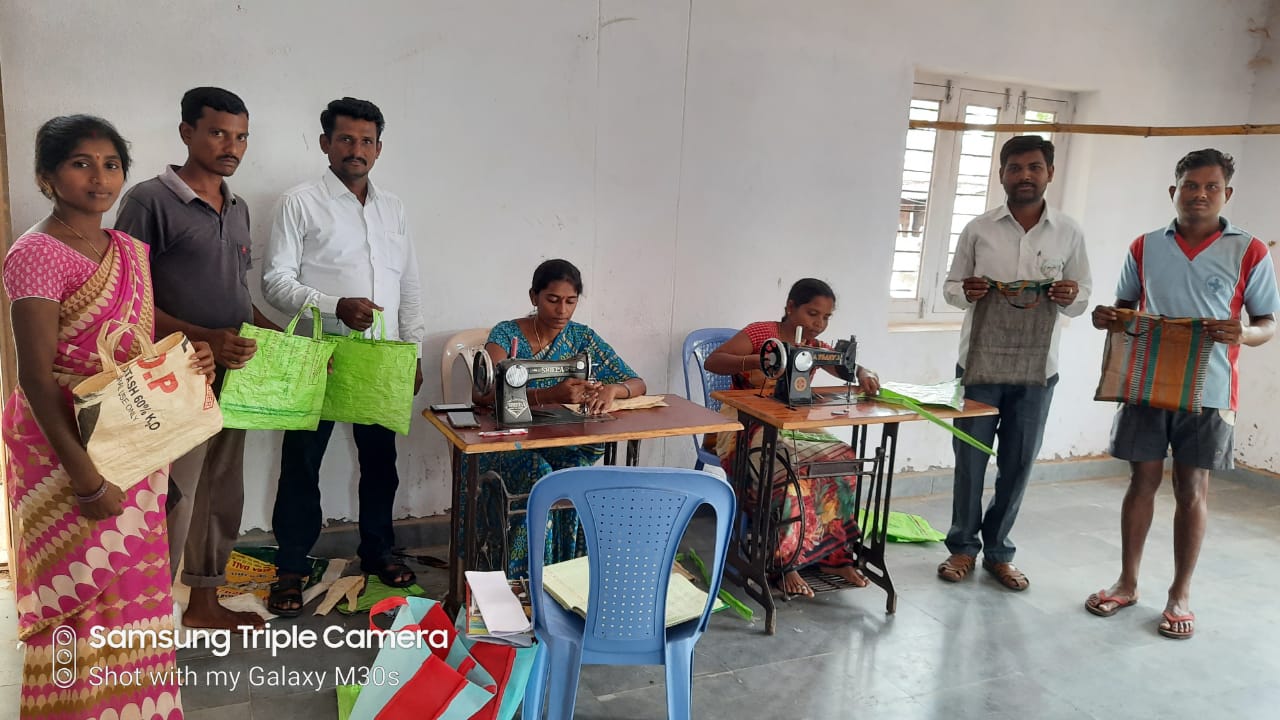
“We have hired tailors in every village who will manufacture cloth bags and distribute it for free to the locals. The money collected through donations will be given to the tailors for purchasing cloth to make reusable bags,” he adds.
Reddy is also working towards implementing other steps like imposing fines to eliminate plastic in the district.
‘Sammakka Sarakka Jatara’ is a prominent festival that is celebrated in Mulugu every year in February. The four-day festival witnesses over a crore visitors that flock in and out. With them comes in the enormous volumes of plastic waste.
To ensure that the plastic waste is segregated and not mixed with the wet garbage, the district is likely to appoint a team of ‘Paryavaran Mitras’ (Friends of the Environment) who will constantly guide people to discard plastic in dry waste bins.
Each village in the district generates close to 1.5 tonnes of plastic waste, most of which end up in landfills due to lack of segregation. Meanwhile, the tourist places generate around two tonnes of plastic waste. In such a scenario, Mulugu’s rice-for-plastic initiative is an effective way to address challenges and maintain the ecosystem.
Also Read: 5 Initiatives That Show How Plastic Barter Systems Are Booming In India
(Edited by Gayatri Mishra)
Like this story? Or have something to share?
Write to us: [email protected]
Connect with us on Facebook and Twitter.
If you found our stories insightful, informative, or even just enjoyable, we invite you to consider making a voluntary payment to support the work we do at The Better India. Your contribution helps us continue producing quality content that educates, inspires, and drives positive change.
Choose one of the payment options below for your contribution-
By paying for the stories you value, you directly contribute to sustaining our efforts focused on making a difference in the world. Together, let’s ensure that impactful stories continue to be told and shared, enriching lives and communities alike.
Thank you for your support. Here are some frequently asked questions you might find helpful to know why you are contributing?


This story made me
-
97
-
121
-
89
-
167











